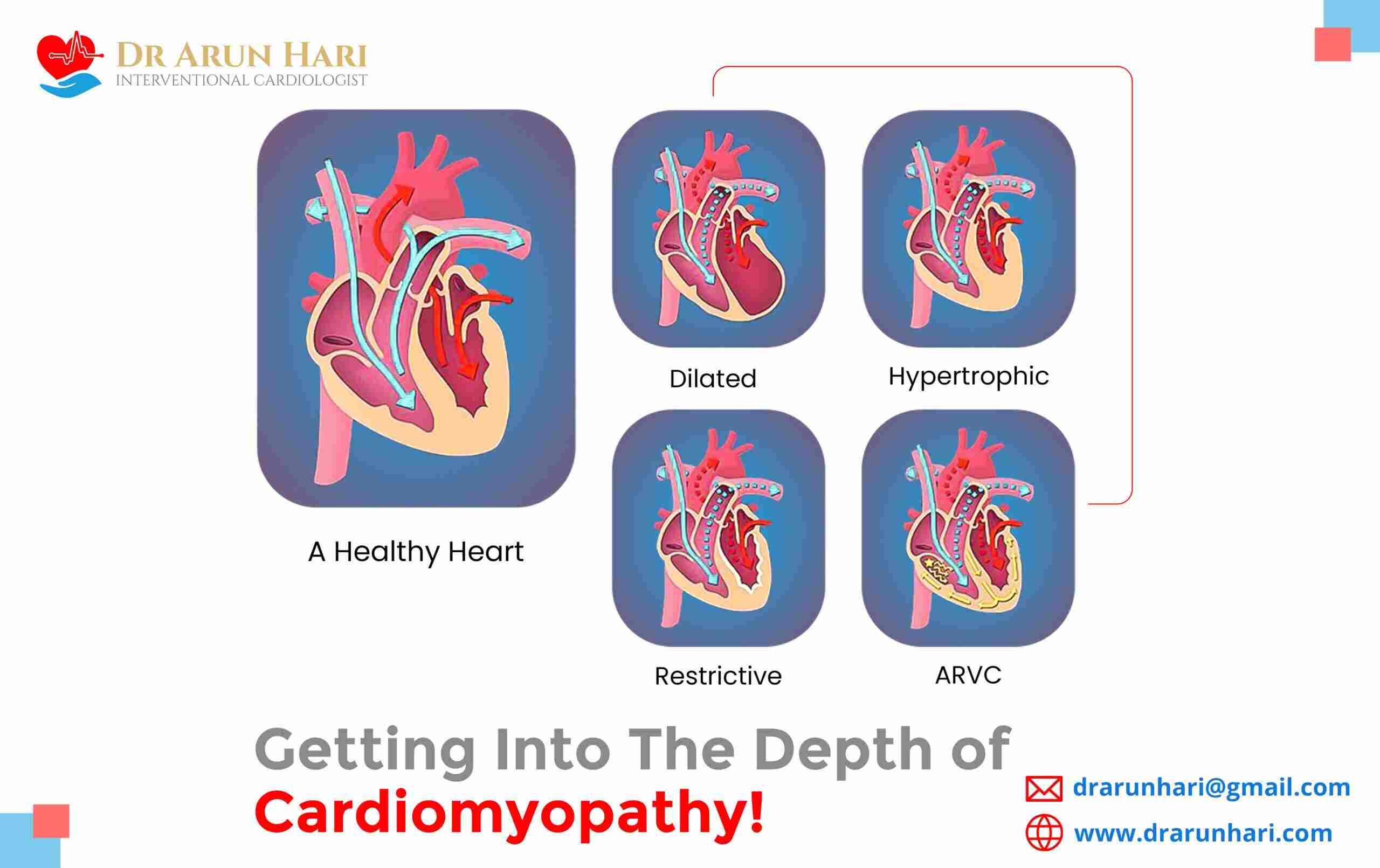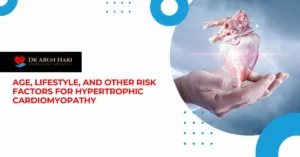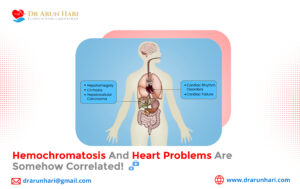What Are the Signs and Symptoms of Cardiomyopathy?
What Are the Different Types of Cardiomyopathy?
What Causes Primary Cardiomyopathy?
What Causes Secondary Cardiomyopathy?
What Causes Extrinsic and Intrinsic Cardiomyopathies?
Contact Dr. Arun for Cardiomyopathy
What is Cardiomyopathy?
It is a condition wherein the heart muscle becomes weak and unable to pump blood effectively; precisely it doesn’t work as well as it should. The heart may become enlarged and have trouble beating, or it may thicken and grow rigid. Cardiomyopathy could possibly result in heart failures, arrhythmias, and in some unfortunate cases, even sudden cardiac death. The heart is a muscle that pumps blood around the body, and needs to be strong to do its job properly. If the heart muscle becomes weak, it can’t pump blood as well and this can lead to serious health problems. In this, it becomes harder for the heart to pump blood.
How Does the Heart Function?
The heart muscle is made up of walls of muscle that contracts and relaxes to pump blood. The contracting and relaxing of the heart muscle is controlled by the electrical conduction system of the heart. The electrical conduction system of the heart includes the sinoatrial node (SA node), the atrioventricular node (AV node), and the Purkinje fibers. The SA node is located in the right atrium, and it is the natural pacemaker of the heart. The AV node is located in the right ventricle, and it delays the electrical signal from the atria to the ventricles. The Purkinje fibers are located in the left ventricle, and they are mainly responsible for electrical conduction as well as propagation of impulses to ventricular muscles. Several ventricular arrhythmias tend to get started in this system.
What Are the Signs and Symptoms of Cardiomyopathy?
Signs and symptoms of cardiomyopathy can include shortness of breath, fatigue, and chest pain. If the condition is not treated, it can lead to heart failure and death.
What Causes Cardiomyopathy?
There are many different types of cardiomyopathy, and they can be classified based on their cause, their structure, or their symptoms. There is no sure shot one cause of cardiomyopathy.
What Are the Different Types of Cardiomyopathy?
There are different types of cardiomyopathy, including primary and secondary cardiomyopathies. Primary cardiomyopathies are conditions where the heart muscle is affected for unknown reasons. Secondary cardiomyopathies are conditions where the heart muscle is affected by another condition, such as diabetes or high blood pressure.
What Causes Primary Cardiomyopathy?
Primary cardiomyopathies can be caused by a number of different things, including genetic mutations and viral infections.
What Causes Secondary Cardiomyopathy?
Secondary cardiomyopathies are usually caused by other conditions, such as diabetes or high blood pressure.
What Causes Extrinsic and Intrinsic Cardiomyopathies?
There are also other two types of cardiomyopathy, extrinsic and intrinsic. Extrinsic cardiomyopathies are conditions where the heart muscle is affected by something outside of the heart, such as a viral infection. Intrinsic cardiomyopathies are conditions where the heart muscle is affected by something inside the heart, such as a build-up of scar tissue.
Contact Dr. Arun for Cardiomyopathy
Treatment for cardiomyopathy can include medication, lifestyle changes, and, in some of the very unfortunate of the cases, surgery. Medications can help to improve heart function. For the best treatment options, you can come in contact with Dr. Arun, and seek his help to benefit from his expertise in this domain.





